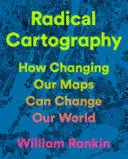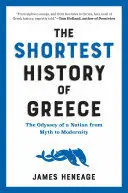The Shortest History Of Greece
The Odyssey Of a Nation From Myth To Modernity
James Heneage
u003cbu003eHow has Greece shaped the world we live in today, and what can we learn from its history?u003c/bu003eu003cbru003eu003cbru003e Philosophy, art, democracy, language, even computers—our world has been shaped by the products of Greek civilization. Yet most of us know little about a people and a place that have contributed so much to our way of life. Pericles and the Part...
Sinopsis
u003cbu003eHow has Greece shaped the world we live in today, and what can we learn from its history?u003c/bu003eu003cbru003eu003cbru003e Philosophy, art, democracy, language, even computers—our world has been shaped by the products of Greek civilization. Yet most of us know little about a people and a place that have contributed so much to our way of life. Pericles and the Parthenon may be familiar, but what of Epaminondas, the Theban general who saved the Greek world from Spartan tyranny? Alexander the Great's fame has rolled down the centuries, but the glorious Hellenistic Age that came after him is largely forgotten. "Byzantine" often conjures a vague notion of decadence and deadly intrigue, yet the thousand-year empire ruled from Constantinople saved Europe twice from invasion and was, in fact, Greek.u003cbru003eu003cbru003e The story of modern Greece, too, is a dramatic tale of triumph and catastrophe, from liberation and expansion through schism and home-grown dictatorship, Nazi occupation, and civil war to today's nation—battered by austerity, a transit camp for the casualties of the Middle East, at the front line of climate change—yet still proud of its values. u003cbru003eu003cbru003e In u003ciu003eThe Shortest History of Greece,u003c/iu003e James Heneage charts the odyssey of the Greeks through more than three millennia. As he does so, he uncovers a vital lesson—one that may just help us fix our own democracies.u003cbru003e
Comentarios
Sé el primero en comentar este libroArtículos relacionados







